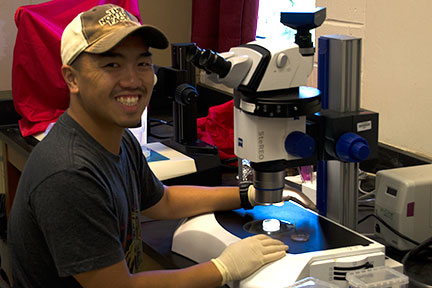 mail.fresnostate.edu
mail.fresnostate.eduHanson Mouanoutoua
 mail.fresnostate.edu
mail.fresnostate.edu
 Mitochondria are semi-autonomous organelles that have their own genome (mtDNA) and that play essential roles for cellular metabolism. Many genes necessary for mitochondrial function are found integrated in the nuclear genome. Therefore, accurate synchronization of function between mtDNA and nuclear DNA is necessary for normal cell function. Malfunction of this organization, either due to mutations or improper temporal synchronization between the mtDNA and the nuclear DNA, will result in a number of mitochondrial diseases. Inheritance of mitochondrial DNA varies among species, but for many species, including humans, mtDNA is typically inherited from the mother. Upon fertilization, the egg appears to have molecular mechanisms that target and destroy sperm mitochondria to prevent their transmission to the offspring. However, species with maternally inherited mtDNA may occasionally exhibit mtDNA inherited from the father. My research is to identify whether paternal mtDNA transmission can be detected using the polymerase chain reaction (PCR) technique, which amplifies a small sample of DNA obtained from the mitochondria to levels detectable by scientists. These samples will then be compared with mtDNA obtained from the mother and the father for similarities and differences. |